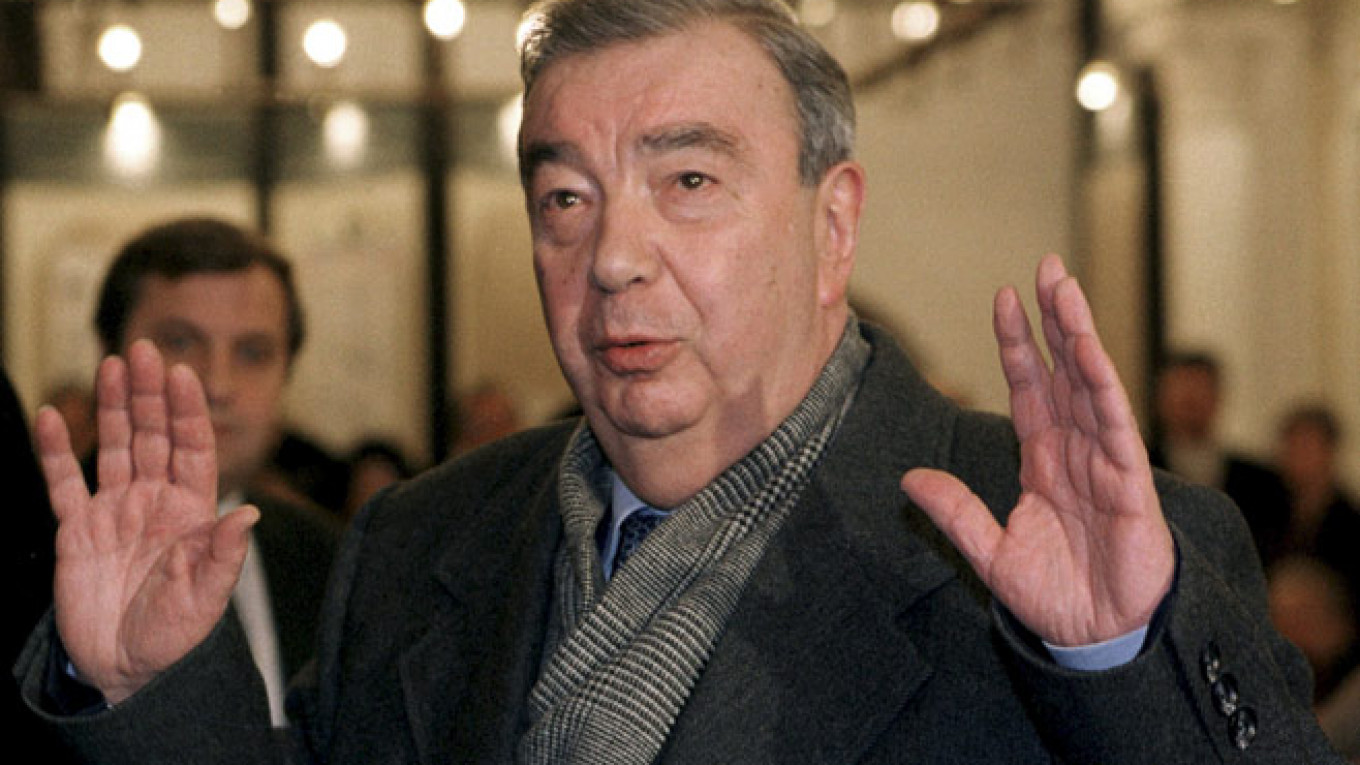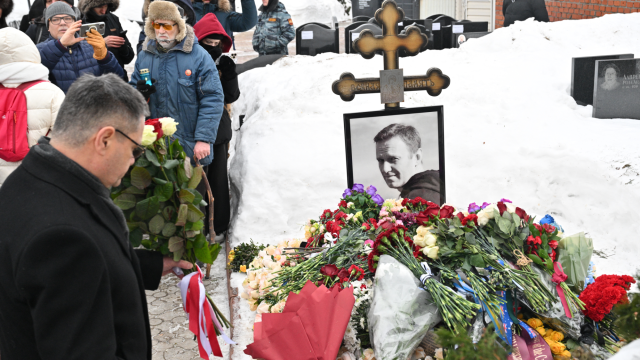Revered statesman Yevgeny Primakov, a former Russian prime minister and foreign minister who steered the country toward stability after its worst economic collapse in 1998, died at the age of 85 in Moscow on Friday after a long illness.
Politicians, analysts and the general public reacted to the news with praise for Primakov's contributions to the Russian state, and mourned his departure as a great loss to the nation.
Primakov had acquired the status within Russia of an indisputable authority on the country's internal and foreign policies, prompting pundits to dub him "Russia's Henry Kissinger."
President Vladimir Putin expressed his condolences to Primakov's family.
"This is a sad, grievous loss for our society. … Yevgeny's authority was respected both in our country and abroad," Putin said in a statement published on the Kremlin website.
The president said Primakov had made a "colossal contribution to the formation of modern Russia."
In a separate decree, Putin ordered a state funeral for Primakov, who will be buried Monday at Moscow's Novodevichye cemetery, where many other illustrious Russians are buried.
Born in Kiev, Primakov was a student of Arabic and economics by education, and went on to forge a spectacular career in public service. In the 1980s, together with a group of prominent experts, he prepared analytical reports for the leadership of the Communist Party and quickly rose to become one of the closest allies of reformist Soviet leader Mikhail Gorbachev.
In the early 1990s, Primakov was one of the first major Russian statesmen to speak against the country's new pro-Western policies. In 1993, Russia's Foreign Intelligence Service — headed by Primakov — produced a report claiming that NATO's expansion toward Eastern Europe was a threat to Russia's interests.
After being promoted to foreign minister in 1996, Primakov continued to argue that Russia should pursue an independent foreign policy, signaling the imminent reversal of the country's orientation toward the West.
In a physical expression of this reversal, upon learning that NATO was about to start bombing Yugoslavia in 1999, Primakov ordered his Washington-bound plane to make a U-turn over the Atlantic Ocean and go back to Moscow. The incident became known as "Primakov's loop" in popular Russian culture.
At that time, Primakov was considered one of the most likely successors to President Boris Yeltsin. Together with then-Moscow Mayor Yury Luzhkov, he launched a bid for the Kremlin, but withdrew his plan to run for the presidency in 2000 when influential power brokers around Yeltsin threw their backing behind Putin instead.
Putin last saw Primakov about a month ago to commemorate the publication of the latter's most recent book, Kremlin spokesman Dmitry Peskov said.
Tatyana Yumasheva, Yeltsin's daughter, wrote in her blog in 2010 that during his tenure as the country's prime minister, Primakov disliked Putin, who was then head of the Federal Security Service (FSB), a successor agency to the KGB.
According to Yumasheva, Primakov went as far as to ask Yeltsin to fire Putin after the latter's request to tap the phone calls of Grigory Yavlinsky, the leader of an oppositional party in the State Duma at the time, was rejected. Yeltsin declined to fire Putin, and the president and Primakov apparently maintained good relations in the 2000s.
Peskov refused to comment on Yumasheva's story, Rossiiskaya Gazeta reported.
Foreign Minister Sergei Lavrov said Friday that Primakov had laid the foundations of Russia's current foreign policy.
"On the one hand it is an independent foreign policy, on the other it is open to wide and close cooperation with everybody who is ready to interact with our country on an equal, mutually beneficial basis," Lavrov said in a statement on the ministry's website.
In 2001-2011, Primakov was head of Russia's Chamber of Commerce and Industry, during which time he continued to offer his insight into the country's internal and foreign policies.
In a recent speech delivered at a high-profile conference in January, Primakov argued that regardless of the ongoing crisis in Ukraine, Russia cannot afford to become isolated and must keep the door open to both Europe and the United States. He also said that Russia should use the current economic downturn to diversify and decentralize its economy.
Alexei Makarkin of the Center for Political Technologies think tank in Moscow praised Primakov on Friday for his ability to pursue a shrewd and balanced policy.
"He was a proponent of realpolitik that was far from both idealism and saber rattling," Makarkin wrote on Facebook.
Dmitry Trenin, head of the Carnegie Moscow Center think tank, said Primakov's death was a particularly grave loss at this time, when Russia needs a level-headed authority who would advise the government on policy-making.
"In Russian politics — both internal and foreign — Primakov was an example of serving the national interest and a proponent of building level and equal relations with other countries," he wrote in a comment on the Carnegie Moscow Center's website on Friday.
"It will be more difficult for us without him," Trenin wrote.
Contact the author at [email protected]
A Message from The Moscow Times:
Dear readers,
We are facing unprecedented challenges. Russia's Prosecutor General's Office has designated The Moscow Times as an "undesirable" organization, criminalizing our work and putting our staff at risk of prosecution. This follows our earlier unjust labeling as a "foreign agent."
These actions are direct attempts to silence independent journalism in Russia. The authorities claim our work "discredits the decisions of the Russian leadership." We see things differently: we strive to provide accurate, unbiased reporting on Russia.
We, the journalists of The Moscow Times, refuse to be silenced. But to continue our work, we need your help.
Your support, no matter how small, makes a world of difference. If you can, please support us monthly starting from just $2. It's quick to set up, and every contribution makes a significant impact.
By supporting The Moscow Times, you're defending open, independent journalism in the face of repression. Thank you for standing with us.
Remind me later.






